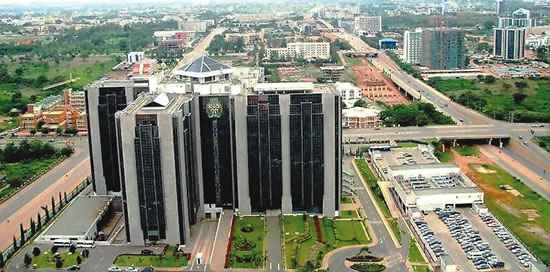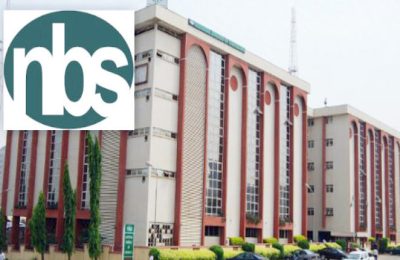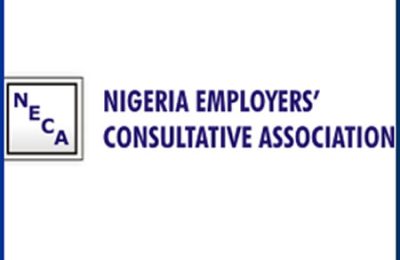

Although the 2024 budget reflects a positive shift towards increased spending on education (eight percent) or N2.18 trillion, healthcare (five percent), or N1.33 trillion
and infrastructure development (five percent of the budget) or N1.32 trillion addressing critical areas for economic growth, economic and finance experts are raising concerns that the substantial allocation of N8.25 trillion to debt servicing, which surpasses other allocations is a misplaced priority.
According to a herd of experts from Cowry Assets Management Limited, “this prioritisation raises questions about the opportunity cost of diverting a significant portion of government revenue away from productive sectors of the economy.”

Also, experts from Ike Chioke-led Afrinvest (West) Africa Limited estimate that the debt service-to-revenue ratio would remain above 60.0 percent in 2024, and the country’s debt profile may likely swell above the N100.0 trillion mark by year-end.
President Bola Tinubu, on November 29, presented the 2024 expenditure plan (its administration’s first budget) to a joint session of the National Assembly for consideration.
The N27.5 trillion expenditure plan was anchored on key assumptions such as average inflation rate of 21.4 percent; average exchange rate of N750.00/$; average crude oil production of 1.78mbpd, and average crude oil price of $77.96/bbl.

In simple terms, Nigeria will spend at least 16 times more on servicing its debt next year than on its social development and poverty reduction programmes, meanwhile, more than 130 million of its population live in poverty.

Nigeria’s public debt stock, which includes external and domestic debt, stood at N87. 38 trillion (US$113.42 billion) in second quarter (Q2) 2023 from N49.85 trillion (US$ 108.30 billion) in Q1 2023, indicating a growth rate of 75.27 percent on a quarter-on-quarter basis.
Recall that in the first nine months of 2023, the nation spent N5.79 trillion servicing debt. That compares with N3.76 billion in 2022 and N3.0 trillion in 2021.
“If you look at the correlation between budget and development outcomes, you will see that they are not working together. The budget has been increasing, yet poverty, inflation and unemployment has been increasing,” Adeola Adenikinju, a professor of economics and president of the Nigerian Economic Society, said.
He added that over the years, the budget has not been speaking to what matters to the people and that has to change.
“So, it is a sorry state to see that we are spending far more money to service our debt compared to reducing poverty,” he added.
By implications, capital projects would suffer more, leading to more abandoned projects, with the Minister of Works, Dave Umahi, recently alleging that President Bola Tinubu inherited N6 trillion debts in road projects, compounding the problem
Most analysts said though the N2.18 trillion allocation for education sector (eight percent).
is an improvement on last year’s allocation (N1.08 trillion) to the sector, it still falls short of the minimum of 15 percent (of the total budget) for education as recommended by the United Nations Educational, Scientific and Cultural Organisation (UNESCO) requirement.
In the same vein, the allocation to healthcare is coming at a time when Nigerian Association of Resident Doctors (NARD) are urging President Tinubu to allocate at least 15 percent of the 2024 annual budget to the health sector.
Available records show that Ghana and Turkey are pushing to grab a share of Nigeria’s $1 billion medical tourism market with offers of curative and preventive procedures enabled by modern facilities, improved technology and highly skilled multi-specialists.
According to the quarterly statistical bulletin of Central Bank of Nigeria (CBN) for Q1 2023, Nigeria spent a total of $1.04 million on foreign healthcare-related services in the first quarter of 2023.
The amount spent in Q1 2023 was an increase of 40.54 percent from the $0.74 million spent in Q1 2022.
Looking ahead to financial year (FY)-2024, the budget allocates N6.48 trillion to personnel and pension costs, representing 35.4 percent of projected aggregate revenues. The allocated amount for capital expenditures in 2024 is N8.70 trillion, surpassing the 2023 provision.
The projected fiscal deficit for 2024 is N9.18 trillion, accounting for 50 percent of total Federal Government of Nigeria (FGN) revenues and 3.88 percent of the estimated Gross Domestic Product (GDP).
Revenue projections for 2024 stand at N18.32 trillion, with N7.94 trillion (43.3 percent) from oil-related sources and N10.39 trillion from non-oil sources.
According to Afrinvest, “In our view, although the budget assumptions appear modest on the surface, we flagged that risk remains potent from both exogenous (crude oil price is heavily susceptible to global shocks) and endogenous (oil theft, insecurity, policy mismatch) sources to derail the expectations.”
“Furthermore, we note that the projected revenue target, ¦ 18.3trn, is overly
ambitious in the near term, given weak antecedent (Nigeria has never achieved a 90.0percent revenue target), heavy skewness of the target accretion towards inflows from oil & gas (43.9 percent share), and the lingering impact of weak macroeconomic fundamentals on businesses.
“Hence, we anticipate that capital expenditure implementation would be the likely scapegoat should revenue underperform significantly (Afrinvest best case projection for revenue is ¦ 14.7tn).”
To the Johnson Chukwu led Cowry Assets Management Limited, another point of economic scrutiny is the ambitious non-oil revenue projection of N10.39 trillion for 2024, marking a considerable increase from the current year’s projection of N8.73 trillion as “we think that the feasibility of achieving this growth, particularly in the context of existing economic challenges and security issues, remains unclear.
Additionally, the allocation ratio between the health sector (5 percent or N1.33 trillion) and the defense and security sector (12 percent or N3.25 trillion) raises questions about the prioritisation of these critical sectors while taking cognisance of the security situation across the country; just in the bid to attract foreign investments and as well, drive growth.
READ ALSO FROM NIGERIAN TRIBUNE









